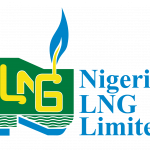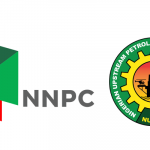Technology
Boosting Website Performance: Tips for Speed and Efficiency

By Rahul Baitha
In today’s digital age, where instant gratification is the norm, website performance plays a critical role in delivering a positive user experience. Visitors expect websites to load quickly and respond seamlessly to their interactions.
If your website lags or stumbles, you risk losing valuable traffic and potential customers. As a web designer or business owner, optimizing your website’s performance should be a top priority. In this comprehensive guide, we’ll explore essential tips and techniques to boost your website’s speed and efficiency.
Understanding Website Performance
Before diving into optimization strategies, it’s essential to grasp the fundamentals of website performance. Several key factors contribute to how users perceive your site’s speed and efficiency:
1. Page Load Time
Page load time refers to the time it takes for a web page to fully display its content in a user’s browser. Studies have shown that even a one-second delay in page load time can result in higher bounce rates and decreased user satisfaction.
2. Responsiveness
Website responsiveness pertains to how quickly a website reacts to user interactions. It includes smooth scrolling, swift navigation between pages, and immediate response to clicks or taps. Responsiveness is critical for retaining user engagement.
3. Server Response Time
Server response time measures how long it takes for a web server to respond to a user’s request. Slow server response times can lead to delayed page loading and frustrated users.
4. Mobile Optimization
With the increasing use of mobile devices, ensuring that your website performs well on smartphones and tablets is essential. Mobile users are particularly sensitive to slow-loading pages.
5. Overall User Experience
Ultimately, website performance contributes to the overall user experience. A fast and efficient website fosters a positive impression and encourages users to explore further, engage with your content, and take desired actions, such as making a purchase or filling out a contact form.
The Importance of Speed
Why is speed such a crucial aspect of website performance? Let’s delve into the various reasons:
1. User Expectations
Modern internet users expect websites to load quickly. When a site doesn’t meet these expectations, users are more likely to abandon it and seek alternatives. A fast-loading site keeps visitors engaged and satisfied.
2. Search Engine Rankings
Search engines like Google consider page speed as a ranking factor. Websites that load faster tend to rank higher in search results. Improved rankings lead to increased organic traffic.
3. Mobile Friendliness
Mobile devices account for a significant portion of internet traffic. Slow-loading sites frustrate mobile users, resulting in higher bounce rates. Ensuring your site’s mobile-friendliness is crucial for retaining this audience.
4. Conversion Rates
Website speed directly impacts conversion rates. Whether you’re selling products, collecting leads, or encouraging user interactions, a faster website increases the likelihood of successful conversions.
Now that we understand the importance of website performance, let’s explore actionable strategies to optimize your site’s speed and efficiency.
Tips for Speed and Efficiency
1. Choose the Right Hosting Provider
Your choice of hosting provider plays a pivotal role in your website’s performance. Opt for a reputable hosting company that offers high-speed servers, efficient resource allocation, and excellent customer support. Consider your website’s specific needs, such as bandwidth and storage requirements.
2. Optimize Images
Large images can significantly slow down your website. Use image compression techniques to reduce file sizes without compromising quality. Additionally, specify image dimensions to prevent page layout shifts while images load.
3. Minimize HTTP Requests
Each element on a web page, including images, scripts, and stylesheets, requires an HTTP request. Minimizing these requests can dramatically improve load times. Combine multiple CSS and JavaScript files into a single file to reduce HTTP requests.
4. Leverage Browser Caching
Browser caching allows returning visitors to load your site faster by storing elements like images and stylesheets locally. Implement caching headers in your server configuration to enable browser caching.
5. Use Content Delivery Networks (CDNs)
CDNs distribute your website’s content across multiple servers worldwide. This reduces server load and decreases the physical distance between users and your site’s files, resulting in faster load times.
6. Enable GZIP Compression
GZIP compression reduces the size of HTML, CSS, and JavaScript files before they’re sent to the browser. This minimizes data transfer times and improves overall website speed.
7. Minimize Redirects
Redirects can add extra HTTP requests and delay page loading. Limit the use of redirects and ensure they point to the correct destination.
8. Optimize Code
Clean and efficient code improves website performance. Remove unnecessary or redundant code, and ensure that scripts are placed at the bottom of your HTML document to prevent render-blocking.
9. Monitor and Test
Regularly monitor your website’s performance using tools like Google PageSpeed Insights, GTmetrix, or Pingdom. Conduct performance tests and address any issues or bottlenecks promptly.
10. Prioritize Mobile Optimization
Given the prevalence of mobile users, prioritize mobile optimization. Implement responsive design practices, test your site on various mobile devices, and ensure fast load times on smartphones and tablets.
Conclusion
Website performance is not a one-time task but an ongoing commitment to providing an exceptional user experience. As a web designer, developer, or business owner, optimizing your website’s speed and efficiency is essential for attracting and retaining visitors, improving search engine rankings, and boosting conversion rates. By following the tips outlined in this guide, you can ensure that your website not only meets but exceeds user expectations. Remember, in the digital realm, speed is often the difference between success and missed opportunities.
Boosting your website’s performance is a universal goal, whether you’re a web designer in Kolkata, a business owner in New York, or a blogger in London. Implement these strategies, and you’ll be on your way to a faster, more efficient website that delights your audience and achieves your online goals.
Technology
Leticia Otomewo Becomes Secure Electronic Technology’s Acting Secretary

By Aduragbemi Omiyale
One of the players in the Nigerian gaming industry, Secure Electronic Technology (SET) Plc, has appointed Ms Leticia Otomewo as its acting secretary.
This followed the expiration of the company’s service contract with the former occupier of the seat, Ms Irene Attoe, on January 31, 2026.
A statement to the Nigerian Exchange (NGX) Limited on Thursday said Ms Otomewo would remain the organisation’s scribe in an acting capacity, pending the ratification and appointment of a substantive company secretary at the next board meeting.
She was described in the notice signed by the Managing Director of the firm, Mr Oyeyemi Olusoji, as “a results-driven executive with 22 years of experience in driving business growth, leading high-performing teams, and delivering innovative solutions.”
The acting secretary is also said to be “a collaborative leader with a passion for mentoring and developing talent.”
“The company assures the investing public that all Company Secretariat responsibilities and regulatory obligations will continue to be discharged in full compliance with the Companies and Allied Matters Act, applicable regulations, and the Nigerian Exchange Limited Listing Rules,” the disclosure assured.
Meanwhile, the board thanked Ms Attoe “for professionalism and contributions to the Company during the period of her engagement and wishes her well in her future endeavours.”
Technology
Russia Blocks WhatsApp Messaging Service

By Adedapo Adesanya
The Russian government on Thursday confirmed it has blocked the WhatsApp messaging service, as it moves to further control information flow in the country.
It urged Russians to use a new state-backed platform called Max instead of the Meta-owned service.
WhatsApp issued a statement earlier saying Russia had attempted to “fully block” its messaging service in the country to force people toward Max, which it described as a “surveillance app.”
“Today the Russian government attempted to fully block WhatsApp in an effort to drive people to a state-owned surveillance app,” WhatsApp posted on social media platform X.
“Trying to isolate over 100 million users from private and secure communication is a backwards step and can only lead to less safety for people in Russia,” it said, adding: “We continue to do everything we can to keep users connected.”
Russia’s latest move against social media platforms and messaging services like WhatsApp, Signal and Telegram comes amid a wider attempt to drive users toward domestic and more easily controlled and monitored services, such as Max.
Russia’s telecoms watchdog, Roskomnadzor, has accused messaging apps Telegram and WhatsApp of failing to comply with Russian legislation requiring companies to store Russian users’ data inside the country, and of failing to introduce measures to stop their platforms from being used for allegedly criminal or terrorist purposes.
It has used this as a basis for slowing down or blocking their operations, with restrictions coming into force since last year.
For Telegram, it may be next, but so far the Russian government has been admittedly slowing down its operations “due to the fact that the company isn’t complying with the requirements of Russian legislation.”
The chat service, founded by Russian developers but headquartered in Dubai, has been a principal target for Roskomnadzor’s scrutiny and increasing restrictions, with users reporting sluggish performance on the app since January.
Technology
Nigerian AI Startup Decide Ranks Fourth Globally for Spreadsheet Accuracy

By Adedapo Adesanya
Nigerian startup, Decide, has emerged as the fourth most accurate Artificial Intelligence (AI) agent for spreadsheet tasks globally, according to results from SpreadsheetBench, a widely referenced benchmark for evaluating AI performance on real-world spreadsheet problems.
According to the founder, Mr Abiodun Adetona, the ranking places Decide alongside well-funded global AI startups, including Microsoft, OpenAI, and Anthropic.
Mr Adetona, an ex-Flutterwave developer, also revealed that Decide now has over 3,000 users, including some who are paying customers, a signal to the ability of the startup to scale in the near future.
SpreadsheetBench is a comprehensive evaluation framework designed to push Large Language Models (LLMs) to their limits in understanding and manipulating spreadsheet data. While many benchmarks focus on simple table QA, SpreadsheetBench treats a spreadsheet as a complex ecosystem involving spatial layouts, formulas, and multi-step reasoning. So far, only three agents rank higher than Decide, namely Nobie Agent, Shortcut.ai, and Qingqiu Agent.
Mr Adetona said SpreadsheetBench measures how well AI agents can handle practical spreadsheet tasks such as writing formulas, cleaning messy data, working across multiple sheets, and reasoning through complex Excel workflows. Decide recorded an 82.5% accuracy score, solving 330 out of 400 verified tasks.
“The result reflects sustained investment in applied research, product iteration, and learning from real-world spreadsheet workloads across a wide range of use cases,” Mr Adetona told Business Post.
For Mr Adetona, who built Decide out of frustration with how much time professionals spend manually cleaning data, debugging formulas, and moving between sheets, “This milestone highlights how focused engineering and domain-specific AI development can deliver frontier-level performance outside of large research organisations. By concentrating on practical business data problems and building systems grounded in real user environments, we believe smaller teams can contribute meaningfully to advancing applied AI.”
“For Decide, this is a foundation for continued progress in intelligent spreadsheet and analytics automation,” he added.
-

 Feature/OPED6 years ago
Feature/OPED6 years agoDavos was Different this year
-
Travel/Tourism10 years ago
Lagos Seals Western Lodge Hotel In Ikorodu
-

 Showbiz3 years ago
Showbiz3 years agoEstranged Lover Releases Videos of Empress Njamah Bathing
-

 Banking8 years ago
Banking8 years agoSort Codes of GTBank Branches in Nigeria
-

 Economy3 years ago
Economy3 years agoSubsidy Removal: CNG at N130 Per Litre Cheaper Than Petrol—IPMAN
-

 Banking3 years ago
Banking3 years agoSort Codes of UBA Branches in Nigeria
-

 Banking3 years ago
Banking3 years agoFirst Bank Announces Planned Downtime
-

 Sports3 years ago
Sports3 years agoHighest Paid Nigerian Footballer – How Much Do Nigerian Footballers Earn












